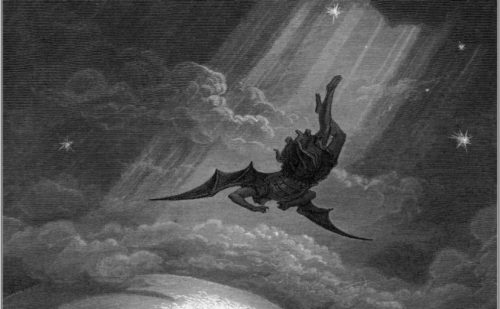
People often talk about one singular, monolithic, ideal morality as is God was sitting up in the heavens waiting for us to figure it out. The belief appears to be that if we ever did figure this out, we would all behave according to it and life on Earth would be harmonious forevermore.
This childish magical thinking is, of course, false. The reality is that there are two very different moralities that represent opposite ends of an ethical spectrum upon which all actions fall.
The fundamental masculine morality is to maintain good order, and the fundamental feminine morality is to allow life to naturally express itself.
Maintaining good order and allowing life to naturally express itself might not sound like contradictions necessarily, but they are still poles on an ethical spectrum.
One can convince oneself of this by realising that all threats to good order arise from the natural expression of life, and that all bad order restricts the natural expression of life. Likewise, all good order allows for the natural expression of life, and all unnatural expressions of life lead to bad order.
This means that it is commonplace for adherents of the masculine morality to want to destroy expressions of life that threaten good order, and it is commonplace for adherents of feminine morality to want to destroy bad order that prevents natural expression of life.
For the most part, it’s entirely possible for these two moralities to work together. But sometimes they don’t.
A man might act according to masculine morality when he tends to his garden. A gardener is not at all interested in allowing life to express itself through the form of weeds. His task is to maintain good order by keeping the weeds out, by keeping the plants in correctly spaced rows, to prevent the soil from becoming too wet or too dry etc.
A woman might act according to feminine morality when she raises a child. When raising a child, women are generally not particularly concerned with the degree of order that child has. What she wants is for the child to express itself through growth, to be healthy and strong, to feel joy at being alive, and this is made more difficult by forcing order on it.
Masculine and feminine moralities therefore come into conflict when a given order is considered good by some and bad by others.
In fact, this is how most conflict starts. A king might consider his kingdom’s operation to demonstrate good order, but there may be forces in the kingdom who disagree, and who consider his rulership to be bad order.
These forces will come into conflict because the natural expression of the sentiments of those who disagree with the king’s rule will conflict with the king’s desire to maintain order, and the king will find himself forced to stamp those sentiments out else risk chaos befalling the kingdom.
In the same way that silver is a compromise between clay and iron and more valuable than either on account of its finer balance, so too does the correct course of action in any given situation appear as a balance between the masculine and feminine moralities.
Morally retarded people are those who are unable to find a balance between the masculine and feminine moral orientations, and so they either try and impose maximum order upon everything (penis-worshippers and control freaks) or maximum chaos upon everything (postmodernists and hyperfeminists).
People who go too far down the masculine track start wanting to maintain order for order’s sake. The concept of good order is forgotten.
Our cannabis laws are an excellent example of an excess of masculine moral sentiment. It’s obvious to everyone that the New Zealand cannabis laws are not fit for purpose and must be changed, but those who wish to maintain order for order’s sake are unable to countenance so much as a conversation about the subject.
People who go too far down the feminine track start wanting to introduce chaos for chaos’s sake. The concept of healthy chaos is forgotten. These people essentially “just want to watch the world burn”.
The refugee policy of Europe over the past two decades is an excellent example of an excess of feminine moral sentiment. The refusal to discriminate between the natives and non-natives, usually for what are claimed to be moral reasons, has led to a collapse in good order as all manner of chancers have flooded in to compete with the natives for resources.
The only way out of our predicament will be to find the correct balance between the masculine desire for order and the feminine desire for free expression.
Metaphysically that means choosing the right combination of clay and iron so that the overall structure can be polished into silver.
In other words, the same as it ever was.



